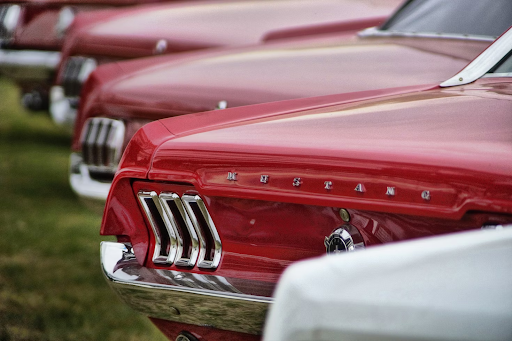5 minute read
Classic cars have a unique charm that captivates car enthusiasts and collectors alike. Whether you’re drawn to the nostalgia of vintage vehicles or the sleek power of muscle cars, navigating the world of classic cars can be both exciting and overwhelming. If you’re considering buying or selling a classic car, understanding the key aspects of the process will help you make informed decisions and enjoy the journey. Here’s everything you need to know to get started.
The Buying Process
Research and Planning
Before diving into the world of classic cars, it’s crucial to do your homework. Start by setting a realistic budget that includes not just the purchase price but also potential restoration or maintenance costs. Identify the make and model that interests you, and research its market value and historical performance. The team at Exotic Auto adds emphasis on the easy and streamlined selling process. Researching provides you with detailed evaluations and market trends, which help you navigate the complexities of classic car ownership. By leveraging their expertise, you can make informed decisions and find a vehicle that aligns with both your passions and financial goals.
Finding Classic Cars
Once you’ve done your research, it’s time to start looking for your dream car. Online marketplaces such as Bring a Trailer and Hemmings are great starting points. Attending classic car shows and auctions can also provide a firsthand look at available vehicles. Networking with car clubs and enthusiasts can lead to valuable recommendations and even off-market opportunities.
Evaluating the Car
When you find a car that piques your interest, a thorough evaluation is crucial. Start with a detailed inspection of the vehicle’s condition, focusing on the engine, bodywork, and interior. Look for signs of rust, wear, or any potential issues. Verify the car’s authenticity by checking the VIN and reviewing its restoration history. If possible, arrange for a professional inspection and a test drive to assess the car’s performance and handling.
Negotiation and Purchase
Once you’re satisfied with the car’s condition, it’s time to negotiate the price. Approach this step with a clear understanding of the car’s market value and be prepared to discuss any issues or repairs that might affect the price. Payment options can vary, so discuss terms with the seller and ensure you understand all aspects of the transaction. Finally, complete the necessary paperwork to transfer ownership and update the car’s title and registration.
The Selling Process
Preparing the Car for Sale
Before listing your classic car for sale, ensure it’s in the best possible condition. Clean and detail the vehicle thoroughly to make a great impression on potential buyers. Address any necessary repairs or maintenance to ensure the car is running smoothly. Gather all relevant documentation, including the title, maintenance records, and any history of restoration work.
Marketing the Car
Crafting a compelling listing is key to attracting serious buyers. Take high-quality photographs from various angles, and write a detailed description highlighting the car’s features, condition, and any unique aspects. Choose the right platform for your listing—whether it’s an online marketplace, a classic car auction, or a dealership. Each option has its advantages, so select one that aligns with your goals and the car’s value.
Handling Offers and Negotiations
Once your car is on the market, be prepared to handle offers and negotiations. Evaluate each offer carefully and consider factors such as the buyer’s seriousness and the offer’s alignment with your expectations. Use negotiation strategies to achieve the best possible price while remaining fair and transparent. Once an agreement is reached, finalize the sale by completing the necessary paperwork and transferring ownership.
Legal and Financial Considerations
Legal Requirements
Buying and selling classic cars involve various legal requirements. Ensure that the title transfer and registration processes are handled correctly to avoid any future complications. Depending on your location, emissions and safety inspections might also be required. Familiarize yourself with local regulations to ensure compliance.
Financial Aspects
When dealing with classic cars, there are also financial considerations to keep in mind. Be aware of any tax implications associated with the sale or purchase of a classic vehicle. Additionally, insurance for classic cars often differs from regular car insurance, so explore options that offer appropriate coverage for your vehicle’s value and usage.
Maintaining and Storing Classic Cars
Routine Maintenance
Owning a classic car requires regular maintenance to keep it in top condition. Establish a routine for servicing and inspecting the vehicle, and seek out mechanics who specialize in classic cars. Proper upkeep ensures the car remains in great shape and can even help preserve or increase its value.
Storage Solutions
Proper storage is crucial for maintaining a classic car’s condition, especially if it’s not driven regularly. Ideally, store the car in a climate-controlled environment to prevent issues like rust and deterioration. Decide between indoor and outdoor storage based on your car’s needs and the available space.
Trends and Future of Classic Cars
The classic car market is ever-evolving. Current trends show a growing interest in certain makes and models, as well as the impact of modern technology on classic car values. Electric conversions and new technologies are beginning to influence the classic car landscape, potentially affecting future market trends.
Buying or selling a classic car can be a rewarding experience if approached with the right knowledge and preparation. By understanding the key aspects of both processes, you can navigate the classic car market with confidence. Whether you’re adding a new gem to your collection or parting with a cherished vehicle, doing thorough research and making informed decisions will help you enjoy every step of the journey.





